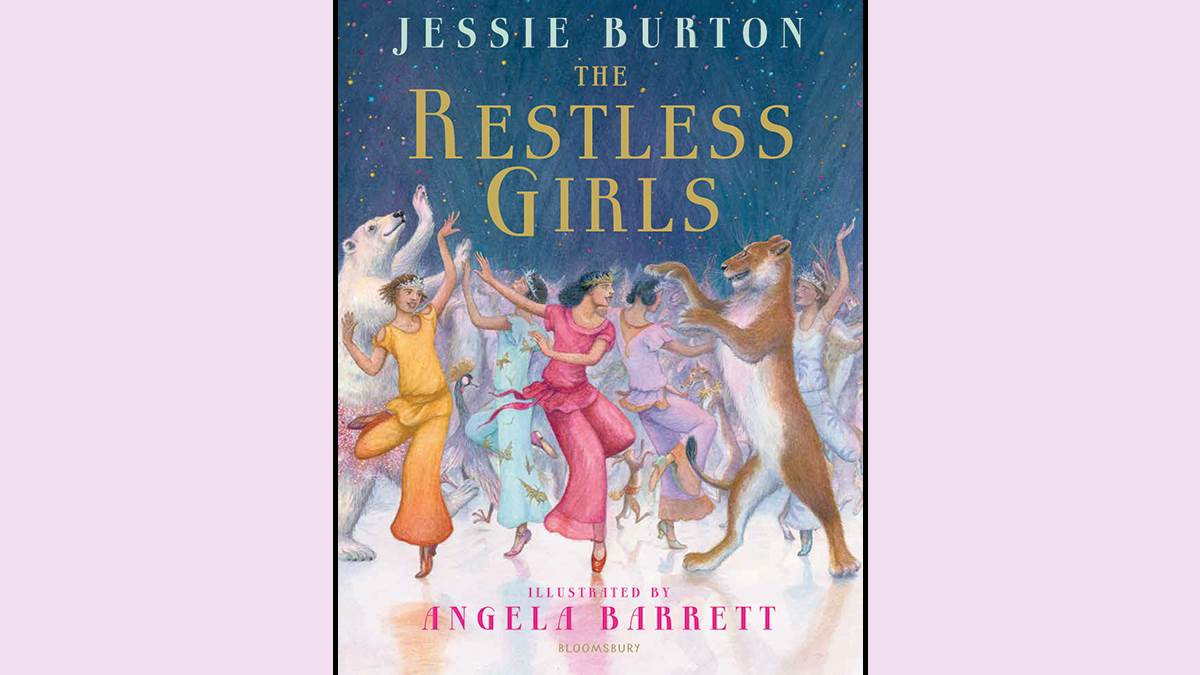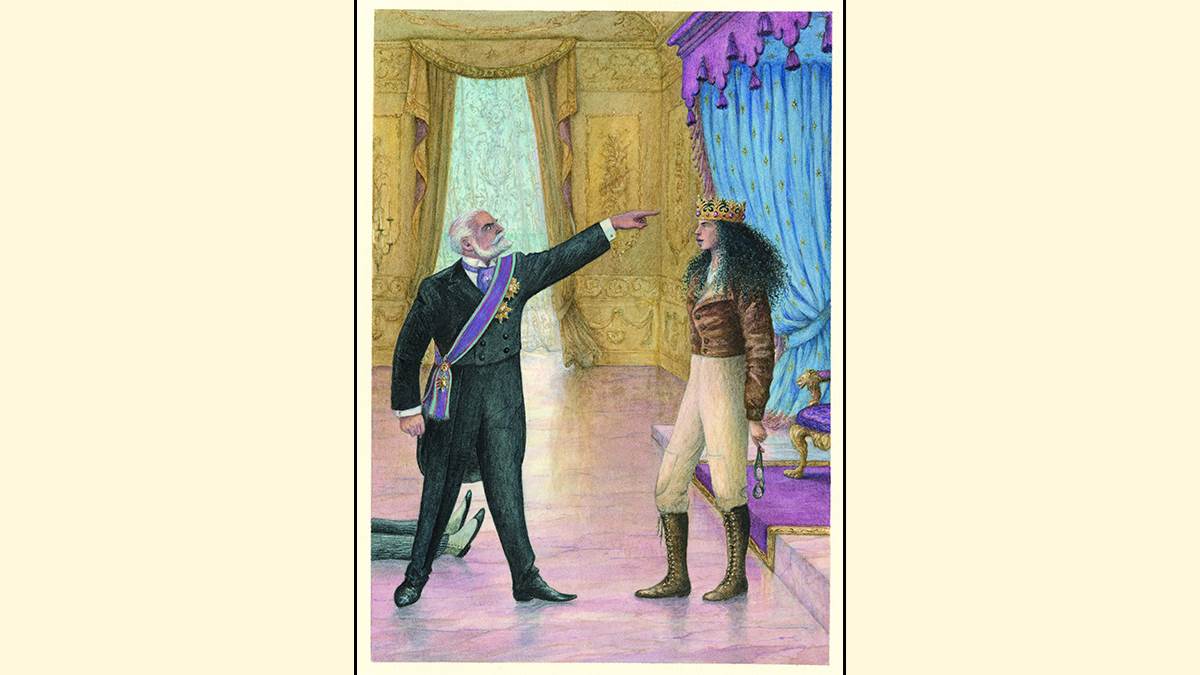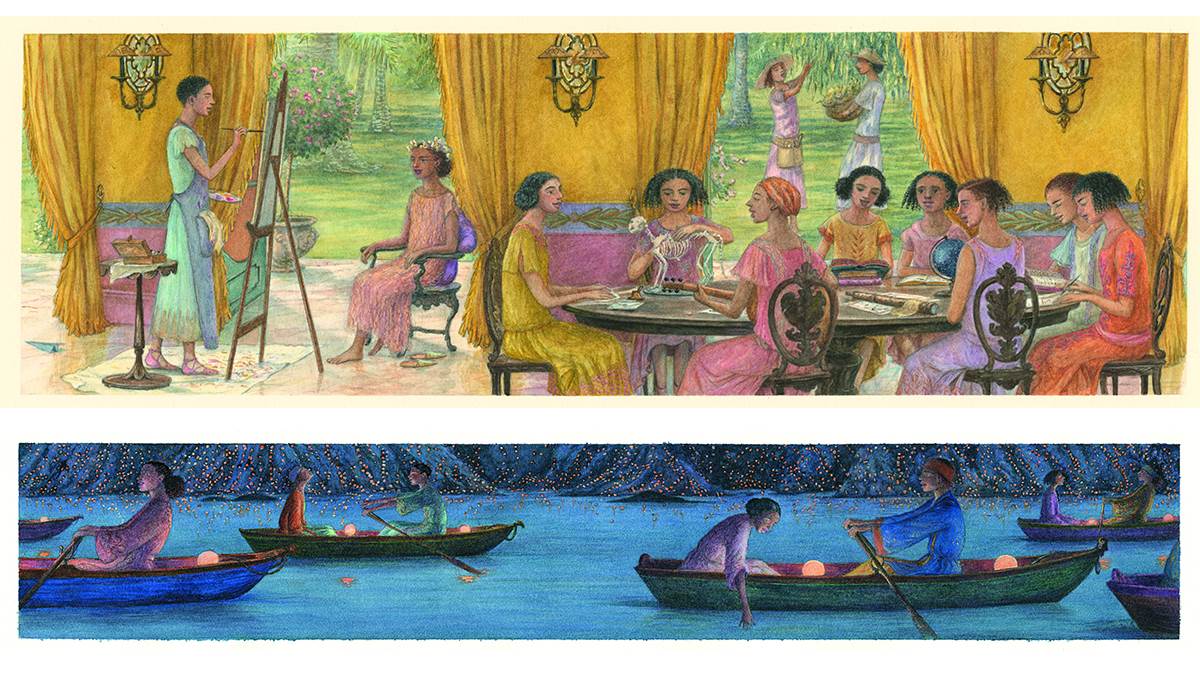'Every princess has a name, a life': Jessie Burton on her feminist retelling of a Brothers Grimm fairytale
Published on: 01 October 2018 Author: Jessie Burton
The Miniaturist and The Muse author Jessie Burton always loved a particular Brothers Grimm fairytale as a child - but reading it from an adult perspective was shocking.
She tells us why she decided to offer a new take on The Twelve Dancing Princesses in her novel The Restless Girls...

When I was a little girl, The Twelve Dancing Princesses by the Brothers Grimm enraptured me, and hand on heart, it still does. Back then, the reasons were plentiful: they were sisters and I was an only child, they had fantastic outfits and shoes, and they flouted the rules by descending every night to a glittering, underground world where they danced until dawn. So far, so good.
But re-reading this tale as an adult, I realised its sinister undertones that I'd either glossed over or been blithely unaware of.
In the original story, none of the 12 girls had names or independent attributes. Their father sought to curtail their one outlet of fun by offering any one of them up for marriage to the man who could solve the riddle of their worn-out shoes. It didn't matter which one the winner married - all princesses were the same.

One of Angela Barrett's illustrations in The Restless Girls
With the help of an invisibility cloak, a soldier stalked them, found their secret and exposed it publicly, and his prize was a princess, handed over with the kingdom.
The Grimms' version made this a triumphant end, but really it was nothing short of a deal done between men, a forced marriage for one of the girls to a creepy stalker and a cessation of freedom for the 11 others. Their lives were over.
Changing the narrative
When I decided to write my first children's book, I knew this was the story I wanted to revisit and revitalise. I wanted to keep the glamour, the fun and the rebellion that I was drawn to as a young girl, and to find true value in that - but I also sought to twist the perspective, so we might see the world through the girls' eyes, not those of the demanding king and the sneaking soldier.
So many parents I know tell me their children are ravenous for fairytales, but they, as guardians of young souls, want to shrivel up and die as the final page turns and another prince comes to the rescue. 'We change the end!' they tell me. So I have changed the end as well.
I joke that I'm a Grimm Sister, because I've handed the story's entire power back to the girls themselves, and by extension to the reader who takes up my book.

Two of Angela Barrett's illustrations in The Restless Girls
I wanted The Restless Girls to retain the unbridled joy of the original, because what had held firm for me over the gap of 30 years was the sisters' ingenuity, style and energy - and the power of a secret that nourished them all.
I wanted to build on those irresistible ingredients, to write a tale fit for a modern child. I wanted humour and resistance - vital qualities in navigating the difficult, confusing world in which we live.
My princesses are assertive, but there is more than a dollop of kindness here. Smart mouths and smart thinking are rewarded, but so is collaboration, thoughtfulness and heart. Every princess has a name, a life, a world inside her own imagination. There's also a peacock maître d', a motor car, and a lot of elderflower fizz!
I knew those girls were restless in the first place for a reason, because once upon a time, I was like them, too. It's their story: not the king's, not the soldier's. They still go dancing - every night! - except no young girl swirling in the lights will be punished for her joy.
That's some feeling, let me tell you. Put simply: it feels right.
Topics: Fairy tale, Classics, Features






Add a comment